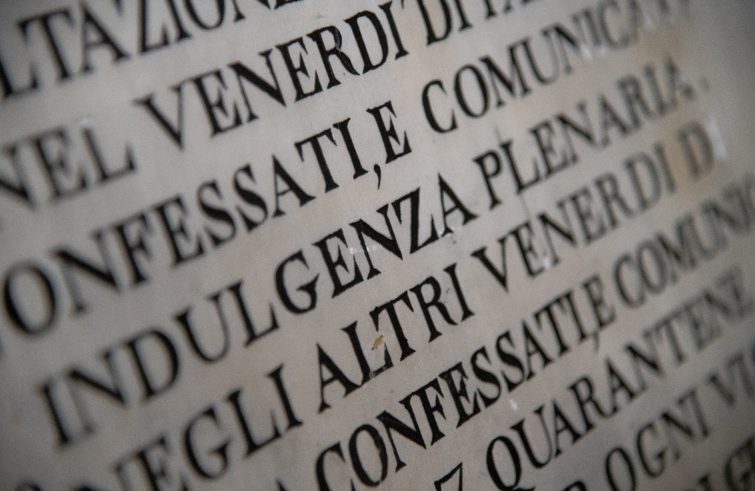
“All the faithful, who are truly repentant and free from any affection for sin, who are moved by a spirit of charity and who, during the Holy Year, purified through the sacrament of penance and refreshed by Holy Communion, pray for the intentions of the Supreme Pontiff, will be able to obtain from the treasury of the Church a plenary indulgence with remission and forgiveness of all their sins, which can be applied in suffrage to the souls in Purgatory.” Thus reads the Decree on the granting of plenary indulgence during the Ordinary Jubilee year 2025. The document, released by the Apostolic Penitentiary on Tuesday, states that the faithful will be able to obtain the Jubilee Indulgence granted by the Holy Father “if they undertake a pious pilgrimage to any sacred Jubilee site,” or, in Rome, by visiting at least one of the four Major Papal Basilicas: St. Peter’s in the Vatican, the Archbasilica of the Holy Saviour (St John Lateran’s), Saint Mary Major’s, and St. Paul’s Outside the Walls. Plenary indulgence can be obtained in the Holy Land by visiting at least one of the three basilicas: the Basilica of the Holy Sepulchre in Jerusalem, the Basilica of the Nativity in Bethlehem, or the Basilica of the Annunciation in Nazareth. In other ecclesiastical areas, the Jubilee Indulgence can be obtained by visiting the Cathedral or other church or sacred place designated by the local Ordinary. “The faithful who are truly repentant of sin but who cannot participate in the various solemn celebrations, pilgrimages and pious visits for serious reasons (especially cloistered nuns and monks, but also the elderly, the sick, prisoners, and those who, through their work in hospitals or other care facilities, provide continuous service to the sick), can obtain the Jubilee Indulgence, under the same conditions if, united in spirit with the faithful taking part in person (especially when the words of the Supreme Pontiff or the diocesan Bishop are transmitted through the various means of communication), they recite the Our Father, the Profession of Faith in any approved form, and other prayers in conformity with the objectives of the Holy Year, in their homes or wherever they are confined (e.g. in the chapel of the monastery, hospital, nursing home, prison…) offering up their sufferings or the hardships of their lives.”
During the Ordinary Jubilee year 2025, the faithful will be able to obtain Indulgence also through corporal works of mercy (to feed the hungry, give drink to the thirsty, clothe the naked, welcome the stranger, heal the sick, visit the imprisoned, and bury the dead) and the spiritual works of mercy: to counsel the doubtful, instruct the ignorant, admonish sinners, comfort the afflicted, forgive offences, bear patiently those who do us ill, and pray for the living and the dead).
The faithful will be able to obtain a Jubilee Indulgence – even daily – “if they visit, for an appropriate amount of time, their brothers and sisters who are in need or in difficulty (the sick, prisoners, lonely elderly people, disabled people…)”. In addition, the faithful will be able to obtain the Jubilee Indulgence if they participate in popular missions, spiritual exercises, or formation activities on the documents of the Second Vatican Council and the Catechism of the Catholic Church.
Despite the rule that only one plenary indulgence can be obtained per day, the faithful who have carried out an act of charity on behalf of the souls in Purgatory, if they receive Holy Communion a second time that day, can obtain the plenary indulgence twice on the same day, applicable only to the deceased.”
According to the conditions set out by the Penitentiary, Plenary Indulgence can be obtained
“through abstaining, in a spirit of penance, at least for one day of the week, from futile
distractions (real but also virtual distractions, for example, the use of the media and/or social networks)”.
The Jubilee Plenary Indulgence is also gained by rediscovering the pentitential nature of Friday through abstaining, as well by donating a proportionate sum of money to the poor; by supporting works of a religious or social nature, especially in support of the defence and protection of life in all its phases, but also by supporting the quality of life of abandoned children, young people in difficulty, the needy or lonely elderly people, or migrants from various countries who leave their homelands behind in search of a better life for themselves and for their families; by dedicating a reasonable portion of one’s free time to voluntary activities that are of service to the community or to other similar forms of personal commitment.” Finally, the Penitentiary urges all priests to offer the faithful “the greatest possible opportunity” to facilitate access to the sacrament of Penance, including by hearing Confessions during the celebration of Holy Mass.










